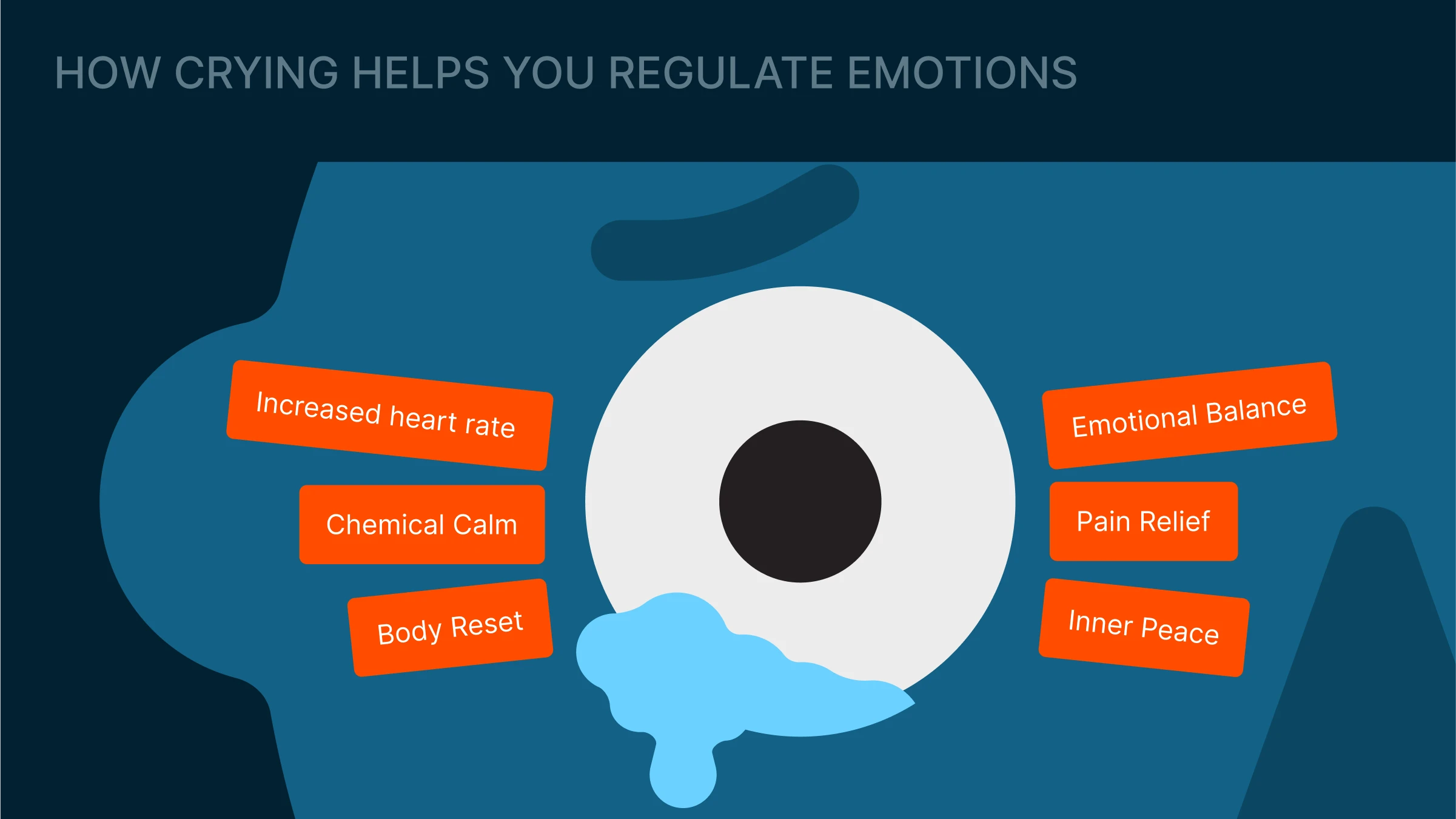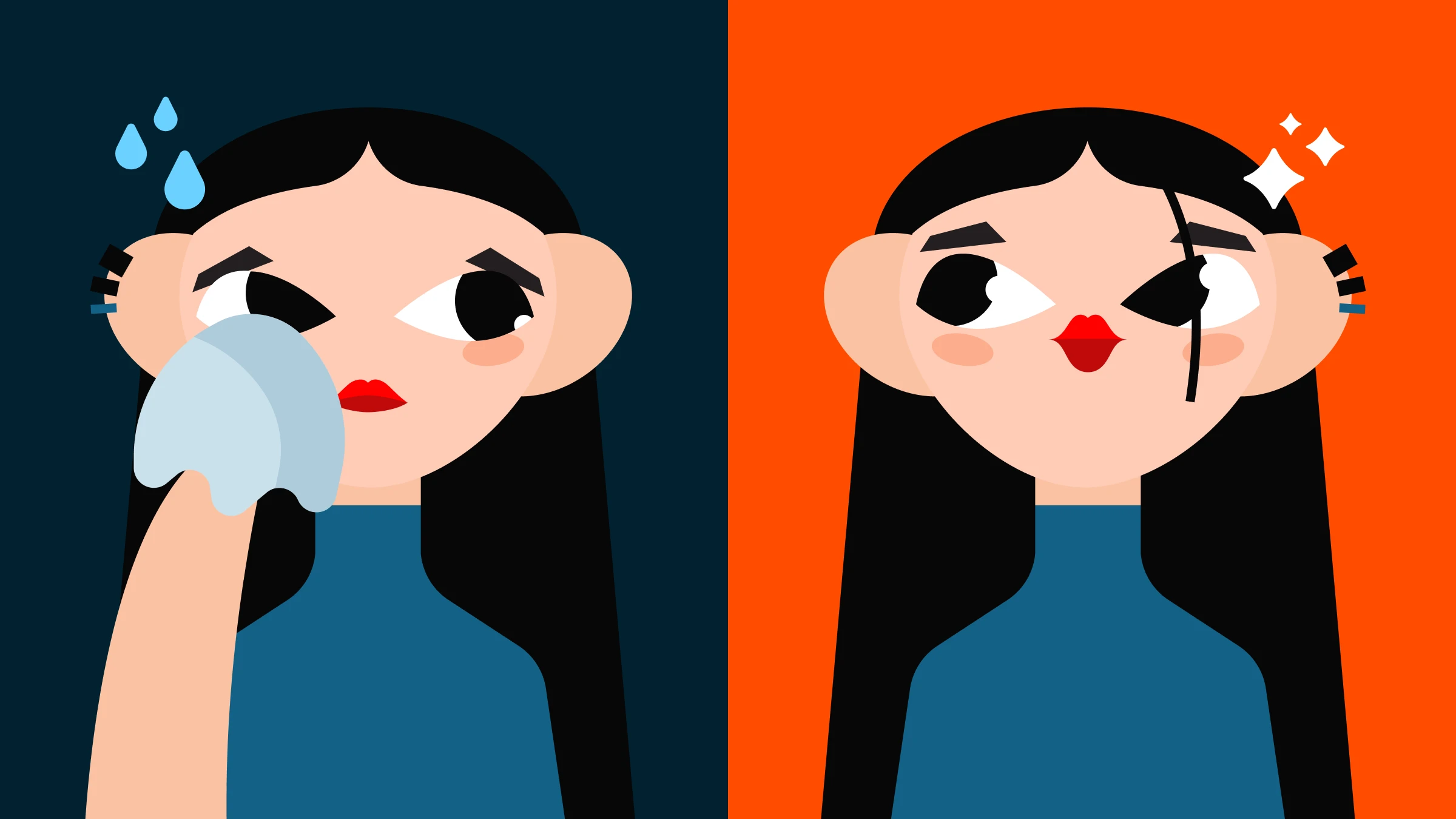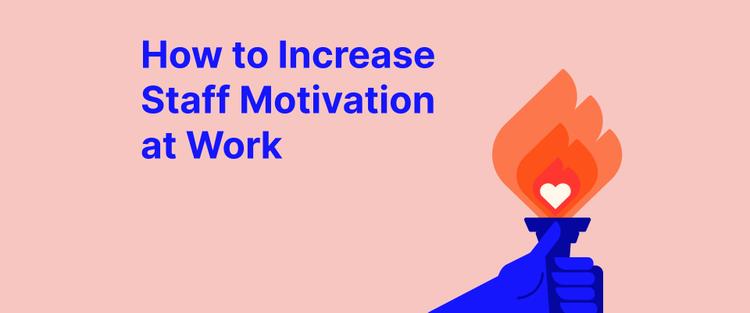You tear up at weddings. You cry during movie scenes. Sometimes, the tears come without warning — and you wonder why your emotions feel so close to the surface. If you've ever asked yourself, "Why do I cry so easily?", you're not alone.
Millions of people experience frequent crying, and while it's a natural human response, understanding the reasons behind it can help you manage your emotional well-being better. Get helpful tips from a clinical psychologist and reclaim your calm with key insights from top books on emotional healing and self-discovery on the Headway app.
These reads will spark your brain and teach you emotional control when you're too busy to dive into an hour-long lecture. Available in both text and audio formats, our book summaries are the perfect learning tidbits for your daily growth.
Try Headway today to squeeze maximum learning into small pockets of time throughout your day!
Quick answer: Why do I cry so easily?
If you cry easily, it's likely due to one or more of these factors:
Biological sensitivity: You may be a highly sensitive person who processes emotions more intensely than others. About 15-20% of people have this trait.
Emotional regulation: Crying is your body's natural way to release stress hormones like cortisol and trigger calming chemicals like oxytocin and endorphins.
Mental health conditions: Depression, anxiety, ADHD, and other conditions can make emotional crying more frequent.
Hormonal fluctuations: Changes during menstruation, pregnancy, or menopause directly affect how easily you tear up.
Life stressors: Major transitions, grief, or burnout can trigger more frequent tearfulness.
The good news? Once you understand what's behind your tears, you can take steps to manage them and find emotional balance. Read on to find out how!
How sensitive are you really? Take a short quiz
This quick quiz will help you identify whether your crying is a normal stress response, a sign of high sensitivity, or something that might benefit from extra support. Answer honestly, and discover what your tears are really telling you.
Ready to understand your emotions better? Download Headway for quick insights from expert books on emotional wellness, mental health, and self-care — all in 15-minute summaries that fit your busy life.
The science behind emotional crying: Triggers and responses
There are several reasons behind crying easily or frequently. These include biological factors, emotional regulation or stress release, and psychological factors such as mental health conditions.
If your crying is bothersome to you, it can help to know what you might do about it. Understanding the reasons behind your frequent crying can lead to improved emotional well-being and overall wellness.
What makes emotional tears different
Emotional crying is uniquely human. Unlike reflex tears (which protect your eyes from irritants) or basal tears (which keep eyes moist), emotional tears happen in response to strong emotions — sadness, joy, fear, or pain.
This type of emotional expression evolved to strengthen social bonds. When we cry, others respond with empathy and support, reinforcing our connections.
How crying helps you regulate emotions
Shedding tears isn't just about releasing feelings — it's a powerful form of emotional regulation:
Stress relief: Emotional tears contain cortisol, one of the key stress hormones. Releasing it through crying lowers your body's stress response.
Chemical calm: An extended cry triggers the release of endorphins and oxytocin — natural feel-good chemicals that relieve physical and emotional pain.
Nervous system reset: Several minutes of crying activate your parasympathetic nervous system, the "rest and digest" mode that helps you relax and regain calm.
Even "tears of joy" serve a purpose. They help restore emotional balance after any intense emotion, showing that a good cry can be beneficial in moments of both sadness and happiness. These are among the key benefits of crying that researchers have identified.
Five reasons why you might cry more easily than others
1. You're a highly sensitive person
High sensitivity characterizes 15–20% of the population. A highly sensitive person processes even minor stimuli deeply due to biological differences in their central nervous system.
If you're highly sensitive, you likely experience strong emotions more intensely and vividly than the average person. You may tear up more easily in response to emotional experiences — from touching stories to beautiful music to everyday stressors.
This tendency isn't a mental health condition — it's a genetic trait. Understanding it can help you embrace your emotional depth rather than fight it.
2. Mental health conditions amplify crying
Frequent crying episodes can signal mental health conditions like:
Depression
Anxiety disorders
ADHD
Postpartum blues or postpartum depression
Depression often comes with persistent tearfulness, feelings of sadness, emptiness, or hopelessness. If these symptoms last more than 2 weeks, reach out to a mental health professional or healthcare provider.
Anxiety creates emotional overload. Chronic worry exhausts you and makes you vulnerable to crying over even small stressors. When anxiety interferes with sleep, emotional dysregulation gets worse — leaving you prone to more frequent crying episodes.
Talk therapy with licensed therapists, whether in-person or online, can be highly effective. Combined with psychiatry services when needed, professional help makes a real difference.
3. Life stressors take their toll
Major life events — even positive ones — trigger frequent tearfulness:
Job changes or promotions
Moving to a new home
Graduations or career transitions
Relationship changes
These events demand adjustment to new environments and challenges, which can feel overwhelming and contribute to burnout.
Tragic events — job loss, divorce, serious health issues, or losing a loved one — naturally trigger more crying. There's no timeline for grieving, and seeking professional help at any stage is both valid and beneficial.
![]()
4. Hormonal changes affect emotional responses
Hormonal fluctuations directly impact how easily you cry:
Menstruation: Premenstrual Syndrome (PMS) affects most people who menstruate, causing mood swings, irritability, and tearfulness.
Pregnancy: Human Chorionic Gonadotropin (hCG) spikes during the first trimester, increasing emotional sensitivity and frequent crying.
Menopause: Shifts in estrogen and progesterone lead to anxiety, irritability, mood swings, and tearfulness.
5. Neurological conditions
Pseudobulbar affect (PBA) causes involuntary, uncontrollable crying due to brain damage affecting emotional regulation. It can develop from:
Alzheimer's Disease
Parkinson's Disease
Traumatic brain injury (TBI)
Stroke
Multiple sclerosis (MS)
Importantly, PBA crying isn't connected to actual feelings. Medication and techniques like deep breathing, distraction, and position changes can help manage symptoms.
When crying becomes a concern
While crying is normal, watch for these warning signs of more serious health issues:
Seven red flags to monitor
Increased frequency: Crying multiple times daily or several times weekly is more than typical for most adults.
Hopelessness: Feeling hopeless and tearful together frequently signals depression.
Can't stop crying: Feeling unable to control your tears may indicate an underlying anxiety or depression disorder.
Physical symptoms: Blurred vision or chest pain while crying could signal a serious heart problem — seek immediate healthcare.
Thoughts of self-harm: Always take these seriously. Contact your physician or therapist immediately.
Unknown triggers: If you're crying without knowing why, it could stem from a medical condition, hormonal imbalance, or exhaustion.
Substance use to cope: Using drugs or alcohol to numb feelings requires professional help.
How excessive crying impacts your daily life
Productivity drops: Your ability to focus and problem-solve diminishes when you're frequently tearful.
Relationship strain: Others may interact differently with you, avoiding direct communication to prevent triggering tears.
Social isolation: Embarrassment about crying can increase loneliness.
Top five effective coping strategies for frequent crying
Self-care practices and self-soothing techniques can help you manage emotional crying. Here are the most effective approaches:
1. Practice mindfulness
Mindfulness means focusing on the present moment rather than the past or future. When you direct attention to your immediate environment, sad or fearful thoughts fade.
Try noticing your physical sensations — heartbeat, breathing, muscle tension. Simply being aware of your body can be extremely calming.
2. Use strategic distraction
When you need to prevent or stop crying, distract yourself with different thoughts:
Remember something funny that recently happened.
Imagine the face of a loved one.
Picture yourself in a favorite place.
3. Journal your feelings
Writing down thoughts and feelings helps you release them and gain clarity — a healthy way to process emotions. The relief can prevent crying spells or shorten them.
Try gratitude journaling: Write down anything you're grateful for in that moment — your pets, your home's comforts, a friend's support.
4. Practice deep breathing
Deep breathing is a simple, effective relaxation exercise. Practice replacing shallow breathing with diaphragmatic (belly) breathing. Once learned, just 2 minutes of deep breathing brings relaxation.
5. Seek professional support
Don't wait to get professional help. A physician can evaluate underlying issues like hormonal imbalances or PBA. A mental health professional can address psychological factors.
Talk therapy is particularly effective for understanding and managing emotional responses. Licensed therapists offer Cognitive-Behavioral Therapy (CBT), Bereavement Counseling, and Family Systems Therapy — either in-person or online. Treatment gets tailored to your specific needs.
Further reading and resources
'Unglued' by Lysa TerKeurst — Gain control over your actions when emotions overwhelm you.
'The Emotional Life of Your Brain' by Richard J. Davidson, PhD — Learn how meditation benefits your emotional well-being.
'Descartes' Error' by Antonio Damasio — Understand the mind-body connection and how emotions affect thinking.
'Heal Your Body' by Louise Hay — See why mental health matters for physical wellness.
For more insight about grief, identity, and family relationships, flip through the pages of books like 'Crying in H Mart' by Michelle Zauner.
Each summary fits into your busy day. Whether you're commuting, taking a lunch break, or winding down before bed, Headway helps you build emotional strength through consistent micro-learning!
Strengthen your emotional wellness with Headway book summaries
Although crying is a normal human response, it can be a warning sign of a more serious condition. So, answering the question, "Why do I cry so easily?" is just the first step. Building lasting emotional resilience, however, requires consistent self-care, consistent growth, and ongoing learning about your wellness.
When you're dealing with frequent crying, you don't have time for lengthy self-help books. Headway delivers the core strategies you need quickly. The app gives you access to key insights from books about emotional regulation, mental health, and self-care — all in 15-minute summaries.
Download the Headway app today and gain access to 2000+ book summaries, daily challenges, and personalized reading collections for everyday motivation and self-growth!
Frequently asked questions on why some people cry so easily
Why do I cry when I get yelled at?
Yelling triggers your body's stress response, flooding you with cortisol and adrenaline. This action activates your fight-or-flight system, and crying becomes an automatic emotional release. It's especially common if you're highly sensitive, have anxiety, or experienced criticism in childhood. Your tears are a natural defense mechanism, not a sign of weakness.
What do you call a person who cries easily?
A person who cries easily is often called a "highly sensitive person" (HSP) — a trait affecting 15–20% of people. Other terms include "empathetic," "emotionally sensitive," or "tender-hearted." These aren't medical diagnoses, but descriptions of how deeply someone processes emotions. It's a personality trait, not a flaw or weakness.
How often does the average person cry?
Research shows women cry an average of 3–5 times per month, while men cry about 1–2 times monthly. However, "normal" varies widely based on personality, stress levels, hormones, and life circumstances. Some people cry weekly; others cry rarely. Frequency alone doesn't indicate a problem unless it disrupts your daily life.
What's the difference between happy tears and sad tears?
Chemically, happy tears and sad tears are nearly identical — both contain stress hormones, proteins, and emotional-regulation chemicals. The main difference is context: your brain releases them in response to different triggers. Both types help restore emotional balance after intense feelings, whether joy, relief, sadness, or grief. All tears serve a healing purpose.
Do empathetic people cry more?
Yes, highly empathetic people often cry more than others. Empathy means deeply feeling others' emotions, which can be overwhelming. If you strongly connect with others' pain, joy, or struggles, you're more likely to tear up in response. This emotional attunement is a strength, though it can feel exhausting without proper self-care and boundaries.











